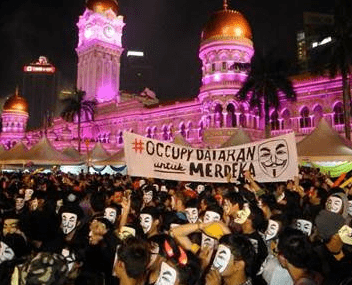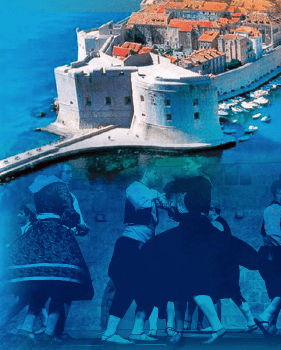In a recent article published in the Huffington’s Post, anthropologist Gina Athena Ulysse claims that the #AAA2015 in Denver was marked by a ‘turn to public anthropology’, i.e a concern for making anthropological knowledge more easily accessible to the public. The list of events we curated for you this month demonstrates a similar trend. Indeed, anthropologists are well equipped methodologically and theoretically to analyse a world of multiple and interconnected challenges. And because there is an emergency in fighting ignorance that breeds fears, radicalism and xenophobia, we have the duty to withdraw from the ivory tower of the academia and expand our audience. You will certainly find inspiration in Barcelona, Dubrovnik, Oxford MS, Warwik or Shimla in India…where all these events are scheduled. Answer the calls and send us your reports…and we’ll make sure that what you’ve discussed is heard!
Also: Do get in touch with Andrea at andreak@allegralaboratory.net or audef@allegralaboratory.net if you want your event to feature in our January list!
 Conference: Social Justice in Times of Crisis and Hope: Young People, Well-Being and the Politics of Education
Conference: Social Justice in Times of Crisis and Hope: Young People, Well-Being and the Politics of Education
6-8 July 2016, RMIT University Europe, Barcelona, Spain
The 21st Century has so far been characterised by conflict, displacement, growing economic insecurity and austerity. Increasing social polarisation has meant that contemporary societies are becoming more unequal with smaller segments of the population having access to the most wealth. Recent years have seen large numbers of young people involved in social movements aimed at creating socially just societies. The ongoing conflicts around the world and the recent refugee crisis in Europe has only intensified calls for justice, equity, compassion and understanding. We live in times of despair and conflict, but also times of hope and action.
This three-day conference (including a half-day networking event) asks delegates to explore the role of social justice in times of crisis and hope. We ask for papers that examine the role of young people in contemporary social movements, with the kinds of demands that are being made by the world’s young people, and with the spaces within which they are making such demands. In addition we encourage papers that engage with the notion of well-being, with what this means in the contemporary moment and for whom. Finally we wish to interrogate the politics of education, to think about the limits and possibilities, the challenges and opportunities for social justice through education. [more]
Deadline for submission of abstracts: 4 January 2016
 Inter Congress: IUAES 2016: World Anthropologies and Privatization of Knowledge: Engaging Anthropology in Public
Inter Congress: IUAES 2016: World Anthropologies and Privatization of Knowledge: Engaging Anthropology in Public
4-9 May 2016, Hotel Palace, Dubrovnik, Croatia
The study of humanity in its wider aspect and unifying humanities, social, biomedical and natural sciences, used to be a strength of anthropology. That characteristic made it, the most humanistic discipline among the natural sciences, and, perhaps, the most scientific among the humanities disciplines. In recent years, it has, however, become more and more difficult to sustain those kinds of wider anthropological perspectives and to maintain the interconnections they require, particularly in a context of the development of manifold anthropologies and anthropological perspectives, especially those which would transcend the discipline’s western roots. Also lost in recent decades, is the discipline’s wider public appeal in part perhaps because of a loss of internal disciplinary coherence. The Inter-Congress aims to seek ways to discover how anthropology can find ways to re-invigorate and sustain its holistic humanist perspective, while at the same time critically engaging with the most urgent social, political, economic and other urgent issues around the globe which make its public responsibility – local, regional, national, transnational, and global — more necessary now than ever before.
The scientific program of the Inter-Congress is intended to provide participants with an opportunity to discuss and develop a comprehensive insight into the diversity of ways in which scientific research and scholarship can be, has been or will be employed to understand and engage in social processes and to consider the various risks brought about by new technologies, global economic development, changes in the world’s demographic structure and the increased complexity of managing contemporary societies. In particular it will consider the extent to which and how privatization of knowledge has become a serious global socio-political threat, not only because it often precludes the general public from knowing about or understanding important new insights in scientific research and scholarship, but also because it results in knowledge being more and more unevenly distributed around the globe to the extent that, if knowledge is privatized, the global south will increasingly be deprived of access to new knowledge and the potential to use it to improve life. The ethnological and anthropological sciences encompass an abundance of different research fields and perspectives, particularly as they develop in diverse parts of the world. The Inter-Congress will provide participants a unique opportunity to learn about those diverse perspectives in the ways they address a wide variety of pressing global issues and topics. [more]
Deadline for submission of abstracts: 31 January 2016
 Conference: 16th annual Isom Student Gender Conference: “Undoing the Norms”
Conference: 16th annual Isom Student Gender Conference: “Undoing the Norms”
2-4 March 2016, The University of Mississippi, Oxford, MS
The Sarah Isom Center for Women and Gender Studies at The University of Mississippi is pleased to announce its 16th Annual Isom Student Gender Conference in the spring of 2016. The ISGC is scheduled for Wednesday, March 2nd through Friday, March 4th on the campus of The University of Mississippi in Oxford, Mississippi. This Call for Papers invites both undergraduate and graduate student scholars, writers, and activists to participate.
The 2016 conference theme is Undoing the Norms. This theme invites participants to question the “norms” of their disciplines of study, society, and of their lives. We hope it creates the potential for a variety of interdisciplinary panels and papers. Papers from all disciplines, along with creative writing projects such as fiction, nonfiction, and poetry are welcome. Proposals for roundtable discussions that center on community building, advocacy, and social change both on and off the campus through the arts, social media, and student engagement with broader communities are encouraged.
We are delighted to welcome Dr. Brittney Cooper, assistant professor of Women’s and Gender Studies and Africana Studies at Rutgers University, as the keynote speaker for the conference. She is a Black feminist theorist who specializes in the study of Black women’s intellectual history, Hip Hop generation feminism, and race and gender representation in popular culture. She is also a co-founder of the Crunk Feminist Collective, a popular feminist blog and writes a regular a weekly column on race and gender politics at Salon.com. You can follow her on Twitter: @ProfessorCrunk. [more]
Deadline for submission of abstracts: 27 January 2016
 Conference: The Matter of Resistance
Conference: The Matter of Resistance
29 April 2016, University of Warwick, England
There is an escalating crisis in resistance studies. A decade ago, there was already such variation in conceptualizing resistance that “little consensus on the definition of resistance” existed, as “the term resistance remains loosely defined, allowing some scholars to see it almost everywhere and others almost nowhere.” It seems both conclusions ring true today, yet in recent years there appears to be an arising need to understand the term. Between the Arab Spring and what has fallen in its wake, such as ISIS, Occupy grew, along with Mexico’s Disappeared, Hong Kong’s Umbrella Movement, Greece’s Anti-Austerity, USA’s Black Lives Matter, Lebanon’s #YouStink, and the UK’s Free Education, to name a few. What has been called “the age of uprising” and “the age of resistance” has most recently been observed by social scientists, such as Costas Douzinas, as an age where philosophers and social theorists lack participation and understanding in “resistance.”
2015 has already seen a rise in publications on “resistance,” but this conference seeks to both further complicate and re-assemble resistance studies by bringing together various fields with a common and particular task. We ask, how does resistance appear materially, in order to ask how it can be recognized and defined? If demonstrable, is such an appearance always resistance? With a material focus, and hesitant resolve, we hope to encounter new practices, impasses and queries, and we do so as problems immediately surface when resistance is strictly perceived as a physical object of attention, and not also as an invisibility, a serialized process, an intent, erasure, or void. [more]
Deadline for submission of abstracts: 20 January 2016
 International Conference: Migrations and Citizenship(s)
International Conference: Migrations and Citizenship(s)
30 May – 1 June 2016, Indian Institute of Advanced Study, Shimla, India
Gruesome reports on migrants—of hundreds drowning as their rickety boats capsized in unforgiving waters, of them being enslaved or detained in squalid camps in Europe and Asia, even of their summary executions on the high seas—have punctuated news headlines with alarming regularity in recent years. What is novel about these reports are not the tragic incidents themselves which have a long history, but their scale as the magnitude of migratory flows across the Mediterranean and the Bay of Bengal have risen exponentially in recent years. The International Organization for Migration, to cite just one figure, estimated that at least 30,400 migrants arrived in Greece till May 12 this year compared to 34,000 in all of 2014.
If the immediate triggers for the rapid increase in migrations across the Mediterranean are obvious—foreign intervention in civil wars from Libya through Syria to Yemen and Iraq, and the continuing instability in Afghanistan—the vast numbers involved raise several questions. These streams of migrants themselves are part of a larger chain of trans-African and trans-Asian migrations as people in places further away move closer to the Mediterranean and Indian Ocean shores to better situate them for the passage to Europe or to Southeast Asia and beyond. While the direct results of Western (or Western-backed) interventions are obvious, what are their indirect corollaries—Boris Pasternak’s “the fruits of fruits, consequences of consequences”—ranging from the structural adjustment policies that wrecked African economies to the U.S. and European actions that enable Israel to expel Palestinians from their homeland? Which populations are more likely to see migration as a route to a more secure future? How have foreign investments in land (and the consequent expulsion of peoples) and environmental degradation (and consequent loss of patterns of livelihood) fuelled these migrations? [more]
Deadline for submission of abstracts: 15 January 2016


